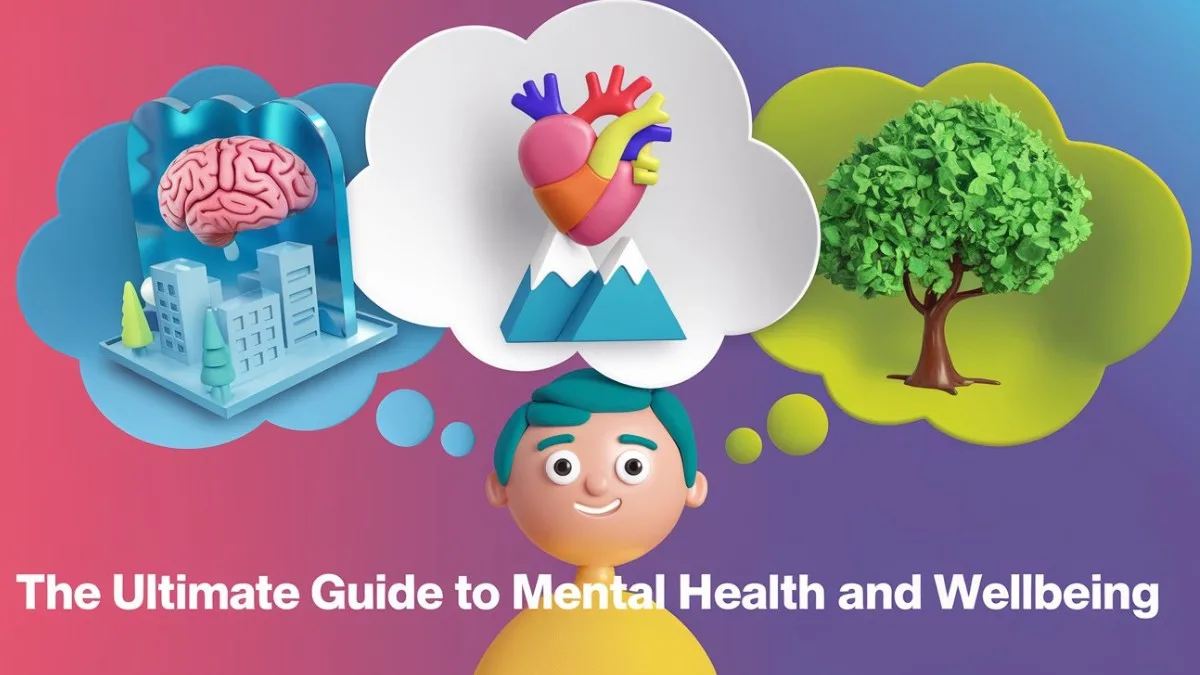
In today’s fast-paced world, mental health and wellbeing have become essential for leading a balanced and fulfilling life. While physical health often gets more attention, taking care of our mental health is equally important. This guide provides a comprehensive look into what mental health entails, how to maintain it, and practical tips to enhance your overall wellbeing.
What Is Mental Health?
Mental health refers to our emotional, psychological, and social well-being. It affects how we think, feel, and behave. Good mental health helps us handle stress, relate to others, and make decisions. Mental health isn’t just the absence of mental illness; it’s about having a positive mindset and resilience in the face of life’s challenges.
Common Mental Health Issues
Some common mental health disorders include:
- Anxiety disorders: Characterized by excessive worry or fear.
- Depression: Persistent feelings of sadness and loss of interest.
- Bipolar disorder: Extreme mood swings, from high (mania) to low (depression).
- Post-Traumatic Stress Disorder (PTSD): Triggered by experiencing or witnessing traumatic events.
- Obsessive-Compulsive Disorder (OCD): Repetitive behaviors and obsessive thoughts.
The Importance of Wellbeing
Mental health and wellbeing are interconnected. Wellbeing involves not just the absence of illness but feeling happy, content, and connected. Wellbeing can be categorized into different types:
- Emotional wellbeing: How well you manage your emotions and cope with life’s challenges.
- Social wellbeing: The strength of your relationships and your sense of belonging.
- Physical wellbeing: A state of good physical health, which directly affects your mental health.
- Workplace wellbeing: How satisfied and fulfilled you feel in your professional life.
Factors That Influence Mental Health and Wellbeing
Many factors can influence your mental health and wellbeing, including:
- Genetics: Family history can make some people more prone to mental health issues.
- Life experiences: Trauma, stress, or negative life events can trigger mental health problems.
- Physical health: Chronic illness, sleep issues, and poor diet can affect mental wellness.
- Social environment: A lack of support, toxic relationships, and isolation can lead to poor mental health.
How to Improve Mental Health and Wellbeing
While some aspects of mental health may be outside your control, there are many steps you can take to improve and maintain your mental health and overall wellbeing.
1. Practice Mindfulness and Meditation
Mindfulness is about being present in the moment without judgment. Regular mindfulness practice or meditation can help reduce stress and anxiety, improve focus, and boost overall emotional resilience.
2. Exercise Regularly
Physical activity isn’t just good for the body; it’s also excellent for the mind. Exercise releases endorphins, the body’s natural mood elevators. Aim for at least 30 minutes of physical activity each day.
3. Prioritize Sleep
A good night’s sleep is crucial for mental and emotional regulation. Create a sleep routine and aim for 7-9 hours of quality sleep each night to help recharge both your mind and body.
4. Eat a Balanced Diet
Nutritional psychiatry is an emerging field that emphasizes the importance of a healthy diet for mental wellbeing. Foods rich in omega-3 fatty acids, antioxidants, and vitamins can positively affect your mood and brain function.
5. Build Strong Relationships
Humans are social creatures, and positive relationships are essential for mental wellbeing. Stay connected with friends and family, join social groups, and make time for meaningful conversations.
6. Seek Professional Help When Needed
There’s no shame in seeking help. Therapy and counseling can provide valuable tools for managing mental health issues. Cognitive-behavioral therapy (CBT), talk therapy, and other treatments can help you navigate life’s challenges.
7. Set Realistic Goals
Setting small, achievable goals can build confidence and reduce feelings of overwhelm. Break larger tasks into smaller steps and celebrate each accomplishment.
8. Limit Alcohol and Substance Use
While it may feel tempting to use alcohol or substances to cope with stress, they can worsen mental health issues in the long term. Moderation is key, and if needed, professional support can help manage addiction or dependency.
The Role of Self-Care in Mental Health
Self-care isn’t a luxury—it’s a necessity for mental health and wellbeing. Self-care practices may include:
- Taking time for hobbies and relaxation
- Engaging in creative activities
- Spending time in nature
- Journaling or practicing gratitude
- Setting boundaries to protect your mental space
Conclusion
Mental health and wellbeing are lifelong pursuits that require consistent effort and attention. By incorporating practices like mindfulness, exercise, a balanced diet, and professional support when needed, you can foster a strong foundation for mental resilience and emotional health. Remember, mental health matters—make it a priority today.